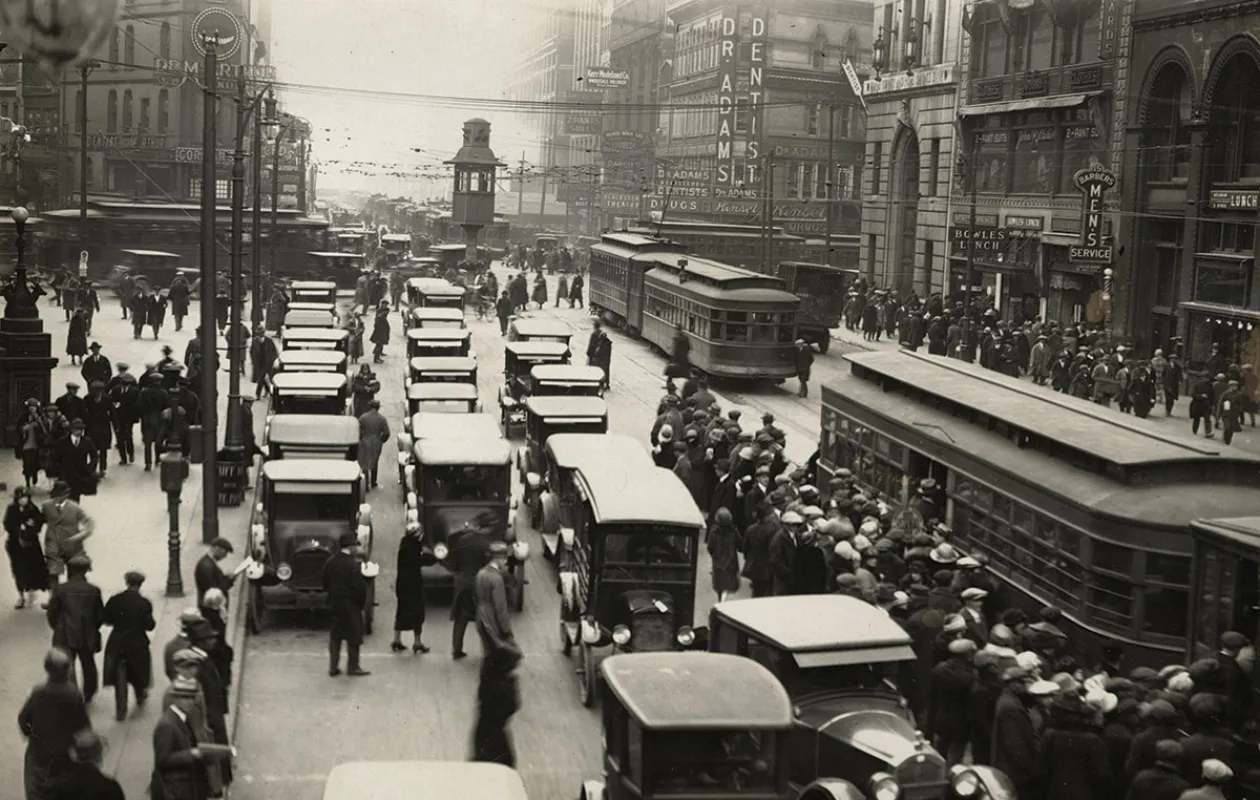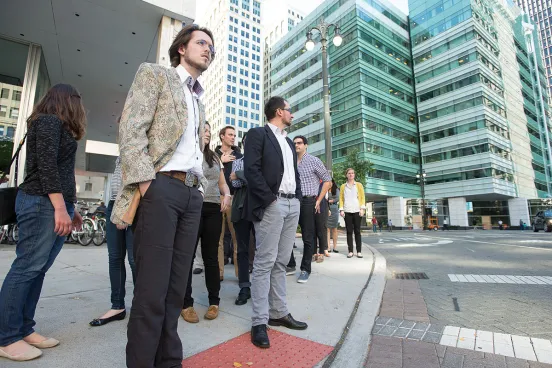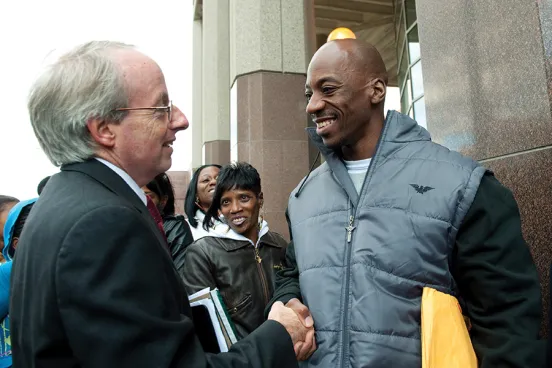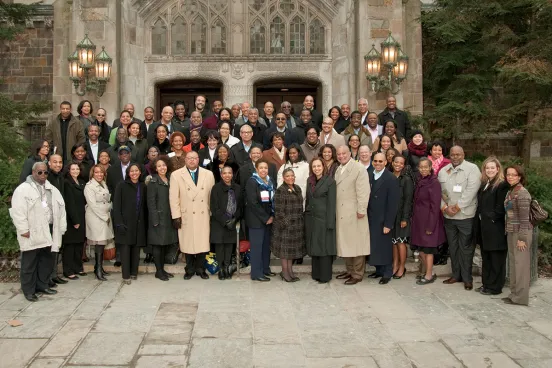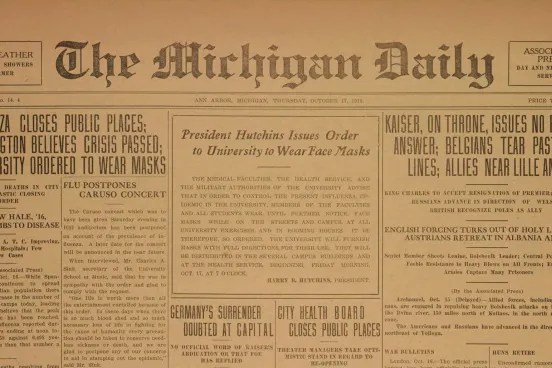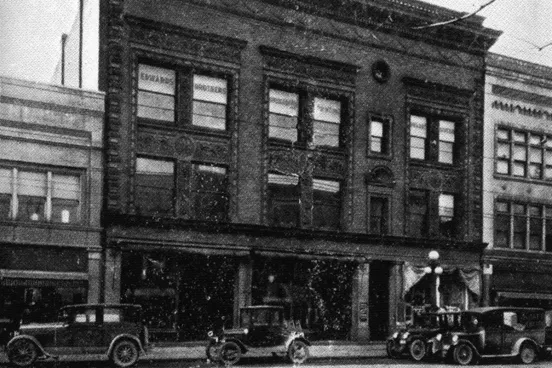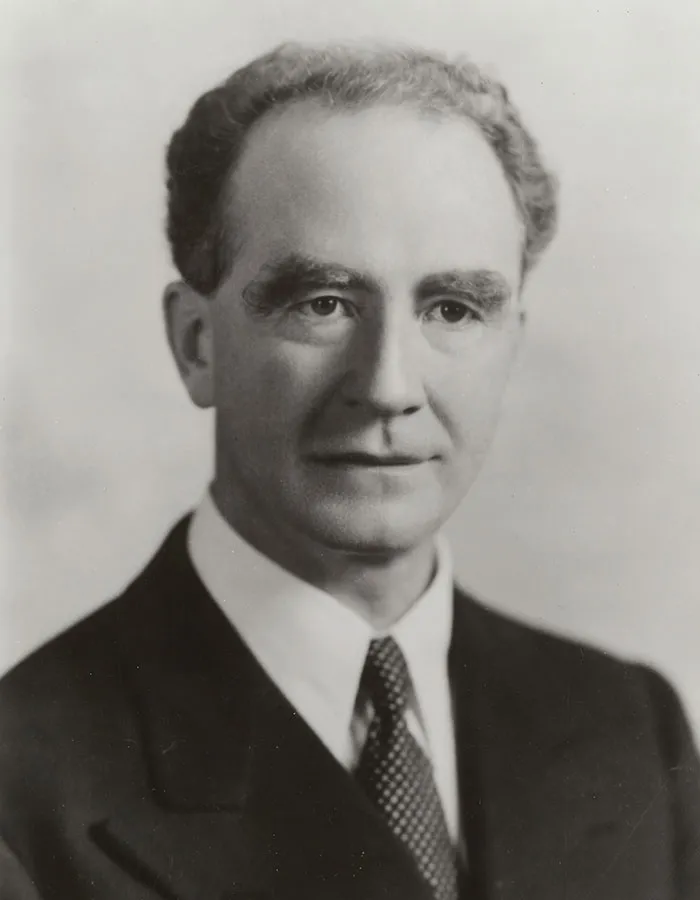
The world watches as one graduate of the Law School (Kevyn Orr, ’83) appointed by another graduate of the Law School (Michigan Gov. Rick Snyder, ’82) struggles to raise Detroit from financial ruin.
Americans of the Great Depression would be astonished by the parallels to their own time. For in 1930, still another graduate of the Law School—Frank Murphy, Class of 1912—was chosen to deal with a fiscal disaster in Detroit nearly as dire as today’s.
Murphy had been a prosecutor, then a judge on Detroit’s Recorder’s Court, where he made his name as a liberal champion of the workingman and the underdog. Cerebral and charming, he ran for mayor amid public outrage over rampant vice and gangland killings. But no sooner had he taken office than crime was overshadowed by the rising specter of economic depression.
For 10 years after the First World War, Americans had wanted cars by the million, and Detroit’s fortunes had soared. City fathers, eager for growth, took on a mountain of bonded municipal debt. Why worry? The future looked bright.
Then came the stock market crash of 1929. Savings vanished. Investments shrank. Demand for new cars collapsed. In 1929, the automakers had built 5.3 million vehicles. By 1931, the number would sink to 1.3 million.
So Ford, General Motors, Hudson Motor Car Co., and Chrysler dropped thousands from their payrolls, and their suppliers dropped thousands more.
Now it was as if a giant pair of pliers gripped the city’s finances. On one side was the inexorable need to service the city’s debt—fixed costs that marched upward year by year. On the other side was the city’s dwindling treasury; with jobless parents struggling to feed their children, taxes took a back seat. By 1932–33, more than a third of Detroit’s tax levy would be delinquent.
That was the squeeze in which Murphy found himself when he became mayor in 1930.
Obviously City Hall had to slash its costs, and a banker-led committee appointed to supervise the city’s finances set out to do so. But the cuts were being urged in the face of want and misery seldom seen in modern times.
This was a nation that tended to blame poverty on character flaws and laziness. Aid to the poor had been reserved for the infirm, the aged, and women deserted by their husbands. But now vast numbers were suffering through no fault of their own.
The writer John Dos Passos found homeless men “all over the vast unfinished city, the more thrifty living in shacks and shelters along the waterfront, in the back rooms of unoccupied houses, the others just sleeping any place.” In one month alone—March 1930—6,500 Detroit families that had never before taken public assistance applied for aid from the city. By mid-1931, in a city of 1.5 million, 100,000 heads of families were without work. A woman killed her five-year-old son to keep him from starving to death.
To this plague Mayor Murphy responded with resolution and compassion.
He acknowledged the need for severe cuts, saying: “Every government, no matter its humanitarian and social ideals, must be sound in its fiscal phase.” He searched for efficiencies in city spending; trimmed supplies and equipment; slashed his department chiefs’ requests for funding; turned off lights in city buildings; reduced garbage collections and street cleaning; and finally cut the city’s own payroll. His biographer, Sidney Fine, estimated that Detroit under Murphy reduced expenditures more than any U.S. city ever had.
But Murphy also insisted it was more important to help hungry people than to make numbers square up on a sheet of paper. A balanced budget was a worthy goal, he said, but “it isn’t a god, a sacred thing that is to be accomplished at all costs. It is not right to shatter living conditions and bring human beings to want and misery to achieve such an objective. … To sacrifice everything to balance the budget is fanaticism.”
With other progressives of his generation, Murphy believed that vaulting industrialism demanded a new code of social organization. He blasted bankers for pushing austerity at all costs, saying that in flush times they had recklessly financed the city’s expansion, and now they were “without a semblance of social responsibility.
“We have been in an era of extreme individualism,” he declared. “It has been best expressed in the industrial order, where it was believed that every man should look out for himself. But this individualism is ruthless and un-Christian, because every man does not have a chance to look out for himself. We shall have to substitute a socialistic sense for this individualistic sense. We have got to realize that no one is secure until all are secure.”
So Murphy did all he could for Detroit’s destitute. Stations were set up where homeless men could eat a meal. Under Murphy’s auspices, Fisher Body and Studebaker put up men in shuttered factories. The mayor sponsored “thrift gardens” in vacant lots. Against protests that he was attracting “all the bums in Christendom” to Detroit, Murphy insisted on maintaining welfare payments to desperate families—50,000 families (about a quarter-million people) per month by early 1931.
It was a fighting retreat against the terrible pressures of debt service and tax delinquency as Murphy fought off one cash emergency after another. At one point, Ford Motor Co.—no friend of the liberal mayor—helped the city with a loan. He was able to convert some debt into longer-term bonds. He marshalled other big-city mayors for a united appeal to the Hoover administration for federal help. But only a small loan resulted, so Murphy enforced a whole new round of cuts. The city even had to issue scrip—a temporary substitute for legal tender.
In the end, Detroit was able to stagger back to solvency with the help of long-term debt restructuring that Murphy had set in motion.
By 1933, he was gone from the city, appointed governor-general of the Philippines by President Franklin Roosevelt. He would return home to become governor of Michigan, attorney general of the United States, and associate justice of the U.S. Supreme Court.
But he always was proud of the stand he had taken for public compassion during his mayoralty, when “welfare, under fire from a dozen different angles … emerged with credit and honor.”
James Tobin is a historian and author whose most recent book is The Man He Became: How FDR Defied Polio to Win the Presidency (Simon & Schuster, 2013).


